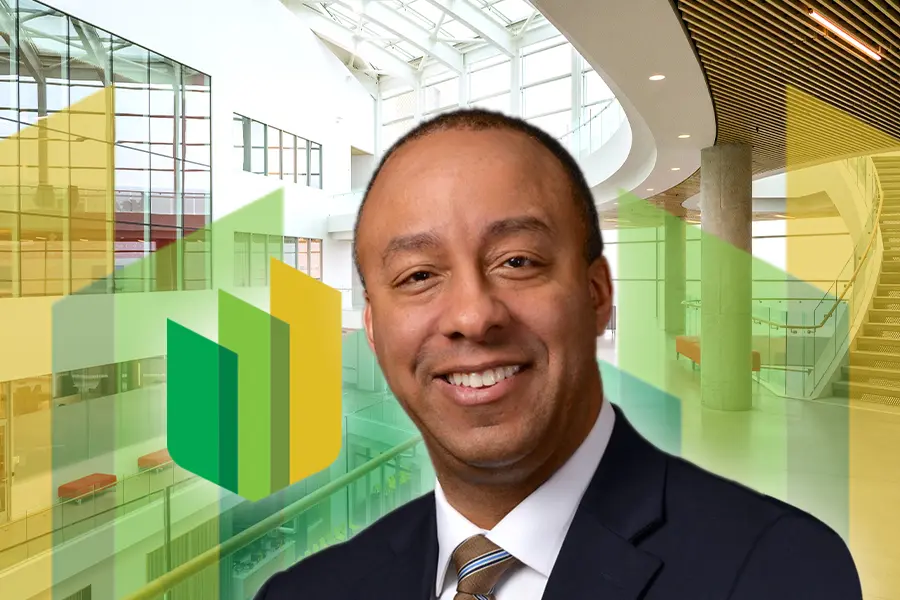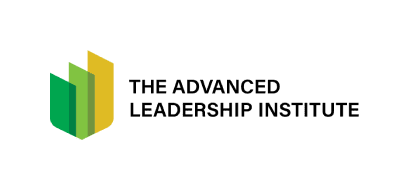
Paving Executive Paths
CMU alumnus Evan Frazier strengthens companies and communities by increasing the leadership pool
By Tina Tuminella
Carnegie Mellon University alumnus Evan Frazier is committed to cultivating Black leaders and retaining Black talent in Pittsburgh and the surrounding region.
A charismatic connector, the 1996 Heinz College of Information Systems and Public Policy graduate with a master’s degree in public management has focused on finding a solution for developing leadership diversity in the region for years.
Now with his nonprofit organization, The Advanced Leadership Institute (TALI), he’s making strides toward this goal and extending TALI’s reach with a Tepper School of Business partnership.
“We know the talent is here, but we also knew we had to help people get into higher-level leadership positions,” says Evan, who serves as TALI’s president and CEO. “We also want to give companies more resources to be more successful in their diversity efforts.”
“They didn’t see other leaders who looked like them. We built the initial programming to solve those two issues, and we’re seeing a positive impact in both cases: on the retention side and with people receiving tangible opportunities for growth and advancement.”
Evan Frazier, President, The Advanced Leadership Institute (TALI)
Problems in the C-suite
TALI started in 2017 as The Advanced Leadership Initiative, and Evan was the founding director. The organization transformed into an institute in 2021. But its beginnings extend further back to a paper he drafted in 2016 as Highmark Health’s senior vice president of community affairs. In it, he looked for ways to bring more professionals like him into the C-suite — a location where such professionals continue to be less common.
Evan cited two overarching problems for TALI to solve. First, many Black professionals were leaving Pittsburgh because they felt stuck in middle management and believed they couldn’t advance in their careers in our region. Employers claimed to not be able to find the talent, which indicated a mismatch that required realignment.
Secondly, newcomers came to Pittsburgh with solid positions and sponsorship, but they soon left because they felt isolated due to a lack of community.
“They didn’t see other leaders who looked like them,” Evan says. “We built the initial programming to solve those two issues, and we’re seeing a positive impact in both cases: on the retention side and with people receiving tangible opportunities for growth and advancement.”
“It’s super exciting to see because that’s exactly what we set out to do!”
“I was excited when Evan came to see me about the idea of developing a partnership to help educate and prepare Black professionals for leadership success. Evan has delivered on his vision and promise. TALI has brought together leading Pittsburgh corporations and organizations with world-class faculty at the Tepper School to educate and prepare the next generation of leaders for Pittsburgh and western Pennsylvania.”
Robert M. Dammon, Richard C. Green Professor of Financial Economics
The Perfect Partners
Evan knew that in order for his organization to grow and succeed, local companies had to be invested in TALI’s mission and work.
Strong corporate involvement and a quality educational partner also would be necessary for success.
He couldn’t imagine a better partner than his own alma mater — and its business school.
“A business school can be used as a model for true community impact,” Evan says. “CMU has a deep history of serving the community and is synonymous with a quality education, and we knew the Tepper School would be an excellent partner. It’s an institution with a world-class reputation that would propel us forward and allow us to expand.”
In early 2017, he shared the TALI concept with CMU’s Richard C. Green Professor of Financial Economics Robert M. Dammon, who was Tepper School’s dean at the time.
Dammon introduced Evan to CMU’s executive education team. Together, Evan and the team developed the Executive Leadership Academy (ELA), the flagship program between CMU and TALI that launched in January 2019. The ELA programs focus on topics of executive education that are customized to address the unique challenges of Black professionals; any qualified individual is eligible to participate in the program, regardless of race.
“I was excited when Evan came to see me about the idea of developing a partnership to help educate and prepare Black professionals for leadership success,” Dammon says. “Evan has delivered on his vision and promise. TALI has brought together leading Pittsburgh corporations and organizations with world-class faculty at the Tepper School to educate and prepare the next generation of leaders for Pittsburgh and western Pennsylvania.”
TALI and CMU also partnered in 2021 on the Emerging Leaders Program, which is geared towards leaders earlier in their career trajectory. The curriculum focuses on executive education, mentorship and supportive peer networks.
“Mentorship in the program is a critical factor to its success,” Evan says. “But perhaps even more important in terms of long-lasting effects, is when those same mentors turn into sponsors. Sponsorship must be earned and can’t just be assigned. People using their social capital on behalf of someone else will help others advance.”
Evan also met his goals of expanding TALI from an initiative into an institute through strong corporate backing and seven-figure grants from the Richard King Mellon Foundation, Highmark Foundation, and BNY Mellon Foundation of Southwestern Pennsylvania.
“After the national awakening following George Floyd’s death, we had a rich conversation with the head of the Richard K. Mellon Foundation, who asked about our expansion plans,” Evan says. “Through those conversations, we got the funding we needed to grow.”
“We need companies to invest in Black talent and to understand that it’s crucial to be deliberate about investing resources which will create greater leadership diversity.”
Evan Frazier
Focused on the Future
To date there are 128 TALI alumni, and by the end of summer there will be approximately 180 alumni. Evan says the programs are doing exactly what he hoped to achieve.
“We’ve had tangible success in both programs,” Evan says. “Our regional retention rate has been in the 90th percentile. TALI tracks graduates of its programs and discovered that within two years, 87% of our inaugural Executive Leadership Academy cohort were promoted or given higher levels of responsibility. Most importantly, 93% of alumni expressed personal and professional growth as a leader.”
TALI’s biggest challenge is how to stay sustainable in the future, he says.
“We need companies to invest in Black talent and to understand that it’s crucial to be deliberate about investing resources which will create greater leadership diversity.”
